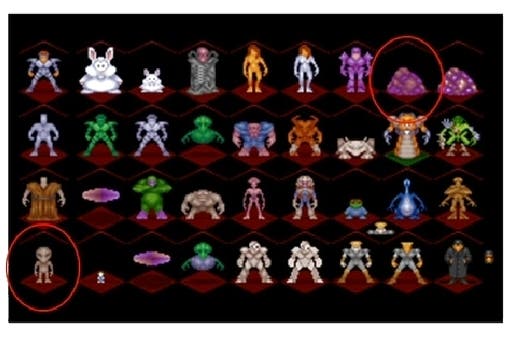Julian Gollop reveals how the original X-Com was nearly cancelled - twice
It was actually dead at one point.
As of the year 2000, the X-Com franchise had sold 470,000 games and made just over £1 million smackaroos, creator Julian Gollop revealed at GDC today. Consider that the original cost just £115,000 to make, and it was "a very profitable game" both for Julian Gollop and his brother as well as ye olde publisher Microprose.
But the game that became a legend - and was reincarnated so successfully recently - was nearly cancelled. Twice.
Gollop pitched X-Com to Microprose - his publisher of choice - and the publisher talked it over with him, suggested some alterations and ask that he go away and write a design document for the game.
This was the first near-death experience X-Com had.
"I went away and I designed the game. I came up with a design document which was just 12 pages long. I'd never written a game design document before in my life, by the way," he added. "And the problem with it was that it didn't really work for Microprose - they didn't understand how the game worked.
"I actually had to go there and personally explain things and have a lot of questions thrown at me. Steve [Hand]," someone who Gollop praised highly and who suggested the original X-Com name, "said the document was very poor and if it hadn't been for the fact that we'd done Laser Squad [Gollop's previous game], he would have cancelled the project there and then."
Hand also said Gollop's alien types "were boring". Ouch.
But disaster was averted and Microprose helped tighten the vision up. Incidentally, some of the only art Gollop saved from the 20-year-old project was of initial alien concepts. I captured a picture of the slide from GameSpot's stream. Remember that back then, everything had to fit within 2MB of data!
"[Spectrum Holobyte] came to review the projects in development in the UK and they took one look at X-Com and said 'Nah, we don't like this - cancel this project'."
Julian Gollop

The more serious near-death experience came when Spectrum Holobyte acquired Microprose in 1993. In fact, for a while there, X-Com was dead, dead as a doorknob.
"[Spectrum Holobyte] came to review the projects in development in the UK and they took one look at X-Com and said 'Nah, we don't like this - cancel this project'. The project was actually officially cancelled.
"However," he added, "Pete Moreland, Adrian Parr, and Paul Hibbard [Microprose top brass] got together. They had a meeting and decided no, we're going to continue with this project. They didn't tell Spectrum Holobyte this, by the way.
"So really, thanks to the support from Microprose UK, the project was saved."
X-Com was already in QA testing at that point, by the way (to use a Gollopism). But the project was taking a bit longer than planned. Gollop signed an 18-month development contract with Microprose but whoops, it actually ended up being closer to 30.
Still, it hadn't been cancelled.
Then the phone rang and it was Spectrum Holobyte on the line, wanting a game to release by the end of the January-March 1994 financial quarter. "Pete Moreland said, 'Well, you know that project you told us to cancel... Well we've still got it."
The only problem was, by Christmas 1993, the state of X-Com "was actually very poor", Gollop recalled. The content was there "but it was very unplayable - it was really in a bad state".
"The last three months were particularly painful, because both myself and Nick were working seven days a week, 12 hours a day to get the game finished."
The rest, as they say, is history.
"...the Firaxis XCOM saved the day. It's like a phoenix rising from the ashes of the X-Com disaster..."

X-Com continued as a series right up to 2001, although by the end it was really X-Com in name only - all the turn-based strategy (and quality, what?) had bled out. X-Com's reputation had nosedived.
"But I would have to say that the Firaxis XCOM saved the day," Gollop remarked. "It's like a phoenix rising from the ashes of the X-Com disaster, to be honest, because I think the whole team at Firaxis did a tremendous job of creating something that was familiar but at the same time different and fresh. And it's amazing that after 20 years, a brand that had gone so badly in the wrong direction has finally been put right."

